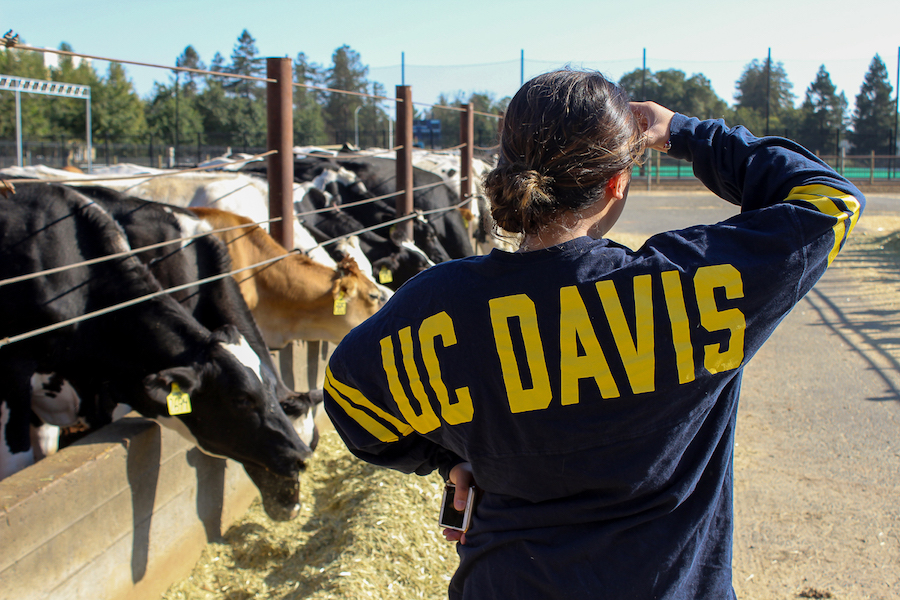
Differences between southern, northern California exhibited at UC Davis
Due to its location in the Sacramento Valley, Davis shares many characteristics of northern Californian scenery, slang and weather. While this environment may be familiar to students from nearby regions, other aspects of the small college town often come as a shock to others.
“There [was] still a culture shock of a new environment, especially one with no beach, even though I wasn’t too far from home,” said Michael Hamming, a second-year international relations major and southern California native. “The unfamiliarity was scary at first […but] if you end up feeling the same, get out and meet as many people as possible because it’s a good way to get comfortable in a new environment.”
After living somewhere for a long time, it’s easy to take the little things for granted. Josh Januska, a second-year life sciences major and native of Ventura, CA, experienced this firsthand.
“I definitely miss Mexican food from down south the most, which I think is better because I’ve grown up on it,” Januska said.
As with many regions in America, sports rivalries between northern California and southern California can be very intense.
“I have noticed that the people up here are split between being 49er fans and Raider Fans for football,” Januska said. “I also noticed that the Giants and Angels rivalry is pretty big in Davis as well, but not quite as intense as the one between the Los Angeles Dodgers and the Angels.”
Many people can still find pieces of home in Davis, such as authentic cuisine and sports rivalries. For anyone from southern California having burrito withdrawals, Januska recommends Taqueria Davis on L Street for the most authentic Mexican food in town.
Another adjustment for non-northern Californian students is the weather, which often seems a bit extreme at first. The weather patterns and seasons that Davis experience are characteristic of the Sacramento Valley.
“We have a Mediterranean climate, which is the technical term for dry summers and wet winters,” said Travis O’Brien, assistant adjunct professor from the Department of Land, Air and Water Resources.
During summer and the beginning of fall quarter, days of over 100 degrees are not uncommon, while persistent rain, cold, crisp days and heavy fog prevail during winter months. O’Brien suggests that students prepare for all types of weather by not only bringing weather appropriate clothing, but also by keeping the California drought in mind.
“Unusually low amounts of winter rain and snow in mountains over a couple of years have been a main cause of this record drought,” O’Brien said. “The second cause is extraordinarily warm summers over the past few years which dry out the soil and lakes.”
Since not all out-of-state students are used to living in such conditions, it is important for them to learn how to stay hydrated in sustainable ways. For example, O’Brien suggests investing in a reusable water bottle to refill at hydration stations around campus.
There are also a few linguistic nuances which differentiate Davis from central and Southern California. In northern California, the word “hella” is used as an alternative for “really” or “very,” or also for “a large amount of something” — native southerners often find themselves boycotting the usage of this word. In general, Californians exhibit various vowel shift which differentiate their speech from those of out-of-staters when saying words such as “dude.”
“Californians believe that they don’t have a distinct accent — however, there are differences in the way we pronounce vowels, which is referred to as vowel shift,” said Robert Bayley, UC Davis professor of linguistics. “The one we experience the most is ‘U fronting’ which we can hear when we say ‘dude’ or ‘goose’ by pronouncing it ‘dewde’ or ‘gewse,’ which is associated with valley girl speech. Just think of Saturday Night Live’s ‘The Californians.’”
While these linguistic nuances are small, they are characteristic of the different regions of California. Bayley recommends respecting other people’s customs as a rule of thumb — whether those customs have to do with language, food or other variances.
“I taught in Texas for a long time and I never adopted “y’all” […] because it just seemed totally phony when I tried,” Bayley said. “However, I believe linguistic diversity is a good thing because how you talk is very much who you are. People associate language with family, the place that they grow up in and things that are close to them.”
Despite the unique farmland-feel, cow smells and linguistic diversity, UC Davis students agree that the people are what make the town and the university so unique.
“The people in Davis are so much more friendly and less judgemental, at least compared to what I’m used to in Orange County,” Hamming said. “In Davis I noticed that people tend to be much more genuine and accepting of things — it’s just a more open environment.”
Written by: Gillian Allen — features@theaggie.org









